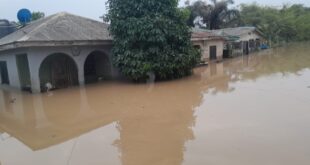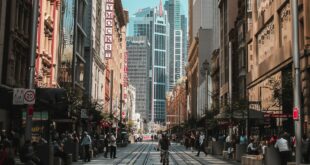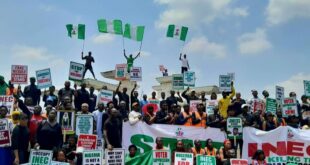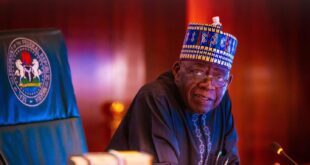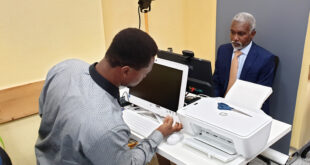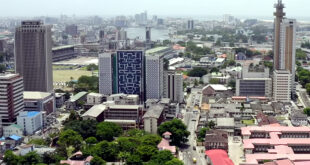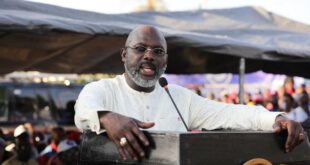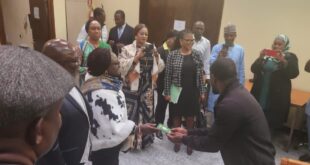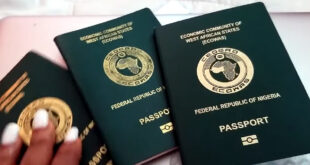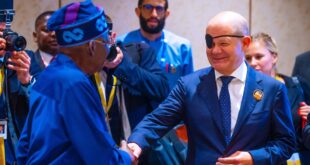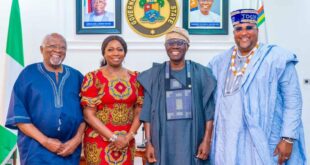While most African countries hold regular elections, the people are not satisfied with the performance of their elected leaders. According to opinion polls, most Africans feel that they are yet to enjoy the economic fruits of democracy.
Why has democracy not delivered economic dividends? At an event in Berlin, a Nigerian economist and former federal minister, Obiageli Ezekwesili, addressed the changes required in politics for African countries to improve their economic development, tackle poverty problems and benefit their citizens.
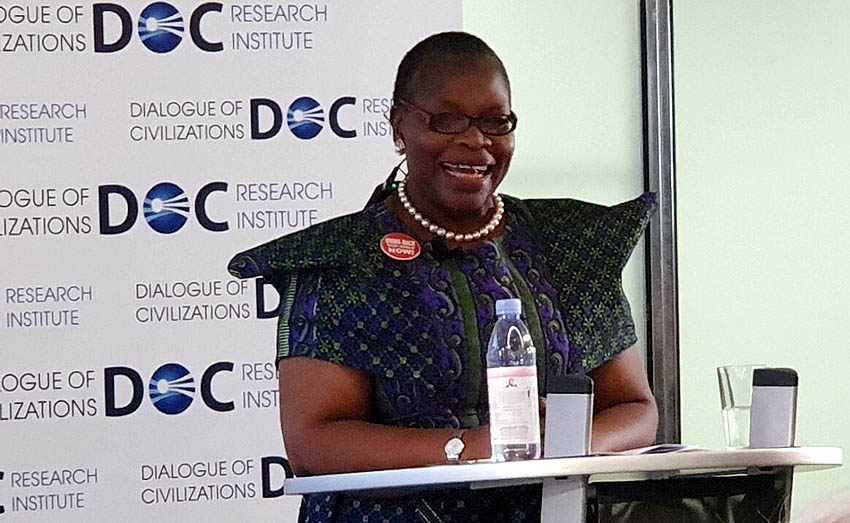
Dr Obiageli Ezekwesili, who served in different capacities including as minister for education under the Presidency of Olusegun Obasanjo (1999-2007), is currently a Fellow at the Robert Bosch Academy in Berlin. There, she’s researching her #fixpolitics initiative, which seeks to make democracy work better for Africa.
On Tuesday, 21 January, Ezekwesili who is also a former Vice President at the World Bank’s Africa Division, addressed a distinguished audience of diplomats, scholars and students at the New Year reception of the Dialogue of Civilisations Research Institute (DOC) based in the German capital.
DOC is an international think tank that promotes dialogue of cultures for a safe, peaceful and harmonious world, according to its CEO, Jean-Christophe Bas, while kicking off the event, attended by dignitaries including Ambassador (Mrs) Shakirat Ogundero, Deputy Head of Mission at the Nigerian embassy in Berlin, and the founder of Transparency International, Prof Peter Eigen.
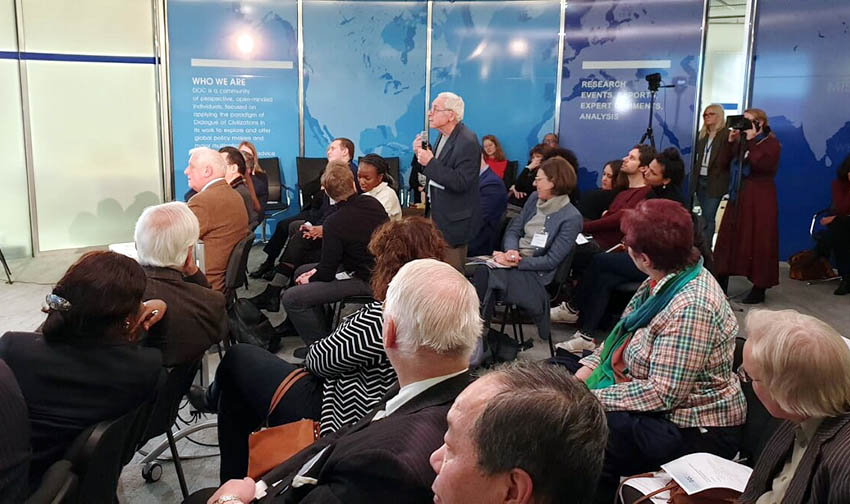
Speaking at the event, titled “Africa’s politics and economic development: Oby Ezekwesili discusses the #fixpolitics initiative”, the technocrat looked at the reasons why democracy hasn’t been able to fulfil the hopes of Africans and what has to be done to fix the problem.
Dr Ezekwesili observed that democracy is putting down roots in Africa with regular legislative elections taking place in 48 countries. However, the enthusiasm of citizens for participation at elections is waning.
In fact, voter turnout has dropped on the average from about 70% a decade ago to as low as 35% in some countries, showing the disenchantment of the citizens with electoral politics.
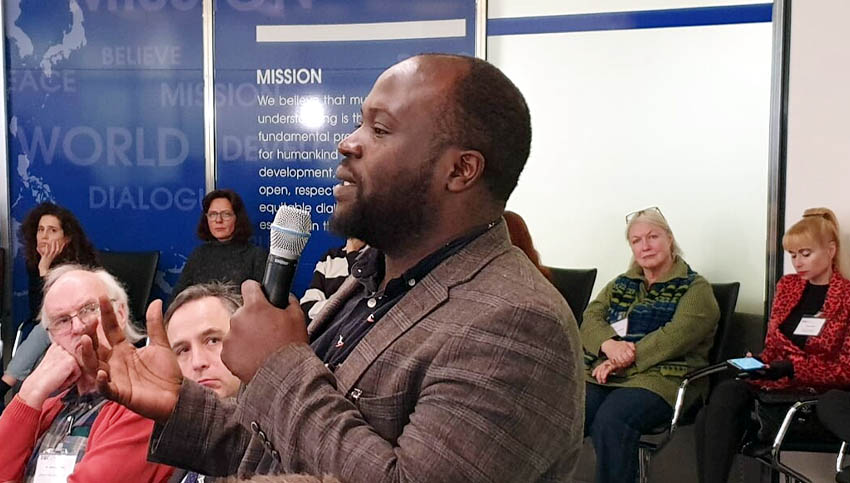
Quoting an Afrobarometer survey, while 68% of Africans prefer to live in a democracy, only about 34% are satisfied with the performance of elected governments.
Ezekwesili pointed to Nigeria, which is experiencing its longest period of democratic rule since independence, but that now has the highest number of extremely poor people in the world. This explains why only about 35% of registered voters turned out for the country’s last general election in 2019, she said.
Ezekwesili said time had come to look critically into why democracy is not delivering good governance in Africa. “Africa has the worst performance in governance compared to other parts of the world,” she pointed out.
Her #fixpolitics research shows that poor quality politics causes unfavourable outcomes for citizens. “Poor quality politics cannot provide good governance,” she posited.

Poor politics is held responsible for Africa’s slow path to development, which has led to almost 450 million people on the continent living below the global poverty line. “The expectation that democracy would deliver people from poverty has been disappointed,” she noted.
The former minister, a co-convener of the Bring Back Our Girls initiative – an advocacy group that pressures government to ensure the freedom of girls kidnapped by the terror Boko Haram group in 2014, warned that if nothing drastic were done, 90% of the extremely poor people in the world would be in Africa by 2030.
The task for Africa is to translate democracy to good policies for economic development, she added.
Ezekwesili said there were visible and invisible barriers to the participation of quality candidates at Africa’s elections.
“Therefore the system does not offer the voters quality candidates.”
“No democracy is worth the name if it doesn’t offer the people the possibility of choosing their leaders through free and fair elections,” she added.
These barriers to participation, including high costs of political organisation and the attitude of seeing politics as a business, have to be removed
Ezekwesili said the Nigerian version of poor politics was one of the worst types. “Politicians use their parties to bargain for their personal interests,” she said. And she talked from experience as she sought to contest for the country’s presidency in 2019 only to withdraw from the race weeks before the election due to disagreements with leaders of her own party.
She opined that for democracy to translate to good governance, politics has to be fixed and she placed a major responsibility of changing politics on the citizens.
Ezekwesili called for a more active engagement of citizens in the political process as the most important change needed.
On corruption, another factor militating against good governance in Africa, Ezekwesili, a co-founder of Transparency International, traced the root of the problem to the immediate post-independence era when African leaders failed to connect the state and its institutions to the people.
The state during European colonialist rule principally served the interests of their motherlands and the African leaders who inherited the responsibility of governance from the colonialists had the duty to change the orientation of the state’s institutions to serve the interest of their people. “They failed to carry out this realignment.”
The continued estrangement of the state from its citizens has allowed corruption to become entrenched in the continent, she posited. “This is why corruption is rife and people hardly hold public servants to account.”
“Civil society must be vigilant and active to be able to hold government to account. Without an active participation of citizens in governance, democracy cannot deliver improved living conditions in Africa,” she concluded.
Femi Awoniyi
READ ALSO Former Nigerian minister bags prestigious German fellowship
 THE AFRICAN COURIER. Reporting Africa and its Diaspora! The African Courier is an international magazine published in Germany to report on Africa and the Diaspora African experience. The first issue of the bimonthly magazine appeared on the newsstands on 15 February 1998. The African Courier is a communication forum for European-African political, economic and cultural exchanges, and a voice for Africa in Europe.
THE AFRICAN COURIER. Reporting Africa and its Diaspora! The African Courier is an international magazine published in Germany to report on Africa and the Diaspora African experience. The first issue of the bimonthly magazine appeared on the newsstands on 15 February 1998. The African Courier is a communication forum for European-African political, economic and cultural exchanges, and a voice for Africa in Europe.


